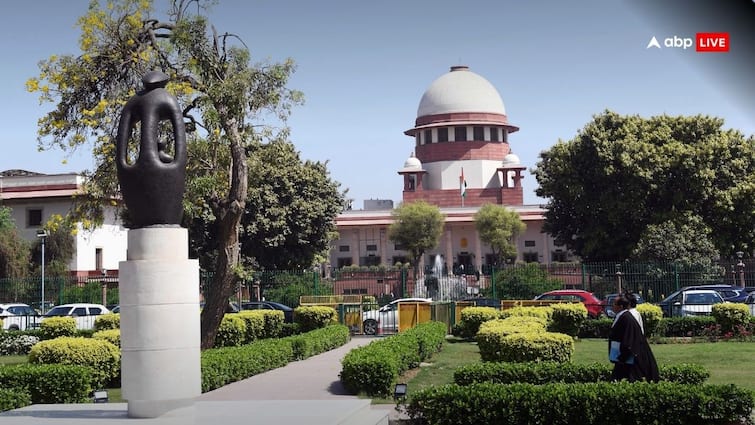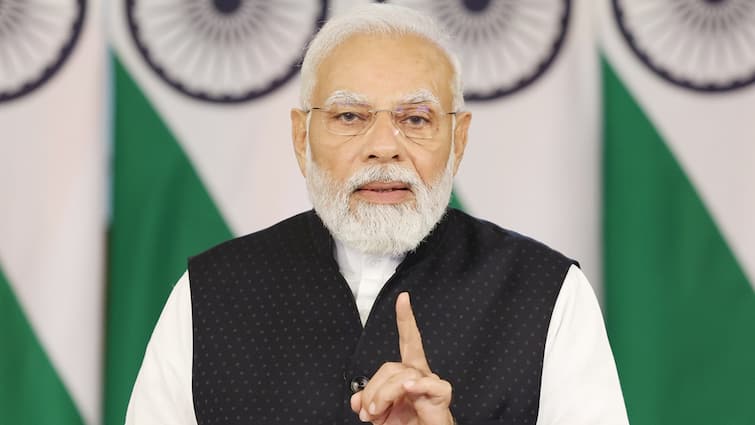New Delhi, Sep 25 (PTI) The Supreme Court on Thursday reserved its verdict on the constitutional question of whether judicial officers, who have completed seven years of practice as advocates prior to joining the bench, can be considered for appointment as district judges against vacancies reserved for members of the bar.
A five-judge Constitution bench comprising Chief Justice B R Gavai and Justices M M Sundresh, Aravind Kumar, S C Sharma and K Vinod Chandran heard arguments on over 30 petitions for three days on the issues believed to have wide ramifications for judicial recruitment across the country.
The bench heard a battery of senior lawyers including Jayant Bhushan, Arvind Datar, PS Patwalia, Gopal Sankarnarayanan, V Giri, Vibha Makhija, Jaideep Gupta, Seshadiri Naidu, Manish Singhvi and Maneka Guruswamy for petitioners in support of the pleas that judicial officers be allowed to take up exam to qualify of district judges posts under bar quota.
The issue was opposed by senior lawyers including C U Singh, Nidhesh Gupta, Vijay Hansaria and Rajiv Shakder.
The bench is examining questions over the interpretation of Article 233 of the Constitution that governs appointment of district judges.
“Appointments of persons to be, and the posting and promotion of, district judges in any State shall be made by the Governor of the State in consultation with the High Court exercising jurisdiction in relation to such State,” Article 233 reads.
It adds, “A person not already in the service of the Union or of the State shall only be eligible to be appointed a district judge if he has been for not less than seven years an advocate or a pleader and is recommended by the high court for appointment.” Bhushan, appearing for a group of civil judges who were denied participation in direct recruitment examinations for district judge posts, began arguments on September 23.
He said several judicial officers, despite completing seven years of practice as advocates before joining the subordinate judiciary, were barred from applying under the bar quota.
Their petitions before various high courts were dismissed, relying on earlier judgments.
“The issue has now culminated into a constitutional interpretation question of great importance,” he argued.
Referring to four key questions for consideration, Bhushan said the first issue was “whether a judicial officer, who has already completed seven years at the bar before joining judicial service, is entitled to appointment as an additional district judge against bar quota vacancies”.
“Whether eligibility for district judge appointments must be assessed at the stage of application, appointment, or both,” he said, referring to the second issue.
The third issue, he said, is whether Article 233(2) prescribes separate eligibility for persons already serving in the judicial services of the union or state.
“Whether a combined period of seven years as an advocate and judicial officer would qualify a candidate for district judge appointment,” he said about the fourth issue.
Senior advocate Nidhesh Gupta, on Thursday, argued judicial officers already in service cannot claim eligibility under Article 233 (2).
Citing precedents including Rameshwar Dayal and Chandra Mohan, he stressed the constitutional text does not permit importing qualifications or explanations not explicitly provided.
“The provision is exclusively meant for advocates with seven years of practice. Reading in-service candidates into it amounts to rewriting the Constitution,” Gupta submitted.
The CJI, however, pointed out that past rulings do not categorically exclude in-service candidates.
“It nowhere says that Article 233(2) is not available to those already in service,” he said.
Senior advocate Vijay Hansaria emphasised that the Constitution has devised separate mechanisms for appointments at different levels.
“Appointee, consultee and eligibility are distinctly provided and cannot be intermingled,” he submitted.
Justice Sundresh observed that Article 233 should not be interpreted in a manner that creates an artificial bar.
“It would be too dangerous for us to hold that those in service previously will not be eligible. We must move away from a judge-centric or lawyer-centric approach and instead focus on being litigant-centric,” he said, stressing on the need to attract the “best legal minds” into the judiciary.
Hansaria, while conceding that the Constitution does not impose an explicit bar either way, said high courts must retain primacy in framing rules and deciding eligibility.
“Under Article 233, the high court is the sole decision-making authority, unlike Article 234 where the public service commission is also involved,” he said.
On August 12, a three-judge bench headed by the CJI had referred to a five-judge Constitution bench the questions.
The posts of ADJs, who are part of higher judicial service, are filled up through promotions of subordinate judicial officers.
They are also filled up through direct recruitment of lawyers who have at least seven years of experience at the bar.
Now the issue is whether a lower judicial officer can also apply for the posts of ADJs under direct recruitment quota meant for lawyers and his experience of seven years as a judicial officer or a lawyer or both can be counted or not. PTI SJK PKS SJK AMK AMK



